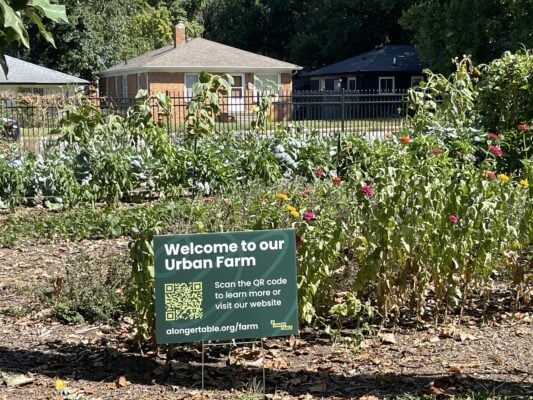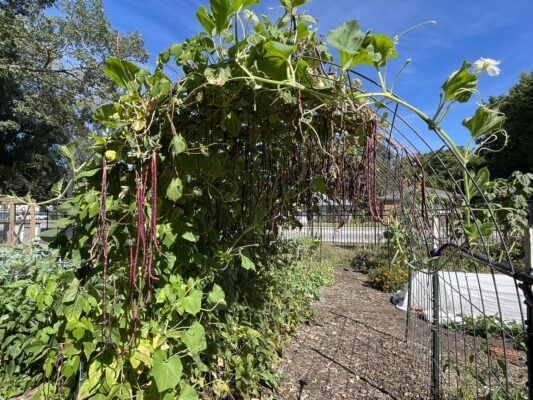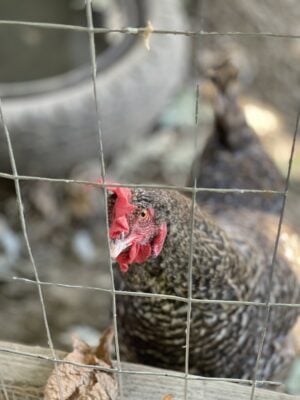Acclaimed restaurateur and philanthropist Martha Hoover believes hunger can be solved. On top of that, she believes her organization, A Longer Table, has begun figuring out how to do it.
Hoover is a former sex crimes prosecutor who became the visionary restaurateur behind Café Patachou, a restaurant focused on fresh, locally-sourced ingredients. Hoover’s restaurant footprint expanded from Café Patachou into a group of some of Indy’s most cherished and unique eateries such as Napolese, Bar One Fourteen, Public Greens and Petite Chou.
Alongside the culinary expansion, the restaurant group grew its philanthropic arm, formerly known as The Patachou Foundation.
Now known as A Longer Table, the organization’s mission to end food insecurity continues. With a focus on changing how students eat at school by providing access to fresh, made-from-scratch meals, A Longer Table is dreaming big.
In part one of this exclusive interview, Hoover sat down with the Recorder to talk about her journey in the restaurant business and why she has joined the fight against food insecurity.
This Q&A has been edited for length and clarity.
You weren’t originally from the restaurant industry. Can you tell me about that journey?
Martha Hoover: You know, in 1989 when I opened Cafe Patachou, I had never worked in a restaurant, not one day. It’s kind of like having a kid. You have no idea what you’re getting into once you bring that baby home from the hospital.
This is a common theme in my life. Where (other people) see something as risky, I see it as a great opportunity. I did not understand the existing restaurant playbook, which was great. I wasn’t trapped by it because I didn’t even know it existed.
Everyone thinks that restaurants are just about the plate. There’s so much more than the food they serve because restaurants are literally pillars of communities.
From day one, my company had a strong commitment to the community. We grew that commitment based on the security and profitability of the company. The Patachou Foundation was very much created in the image of the company that formed it.
As of a year and three months ago or so, I sold the company. We felt internally that it was the right time to really underscore that this organization is no longer about a company; it is truly about a community, our community. Ergo, we decided to change the name.
Kate (Franzman, managing director) came up with this name. We all looked at each other and went, ‘Oh my God, that’s it,’ because it truly is short code for what we are doing.

As you talk about the restaurants that you’ve opened and your commitment to community, I hear themes of dignity, respect, and a focus on the experience that people are having. How did you come to look at things in this way?
Hoover: I truly believe that there is magic at the table. Community building through food is not new. When I created my restaurants, I saw them as sacred spaces. You can’t say they’re community places if they are not welcoming to all. And that welcoming to all is for all customers and all staff as well. And understanding that everything to me associated with the table is a kind of a sacred ritual in that it should be honored.
Food should be served with dignity and the people who prepare it, whether it’s the farmers, the producers, the chefs, the kitchen (staff), people who serve it, deserve the same amount of respect as the people who are eating it.
The new name, A Longer Table, signifies opportunities to have other partners and people at the table. Can you talk about how the vision for A Longer Table has expanded over the years and what you plan to do in the future?
Hoover: I think the name change is reflective of the evolution of the organization. And in the last 12 years, we’ve learned so much.
We’ve learned about our own capacity. We’ve learned about the community needs. We knew when we started that we have a problem with food insecurity in Indianapolis.
Truthfully, we have a problem with food insecurity in just about every community in Indiana. And sadly, we have a food insecurity problem in every state, every city in the United States.
We also understood, as we looked at the ecosystem, that innovation was very important, that new ideas needed to happen to really solve the problem.
“The current hunger relief system is an incredible system, but it is a band-aid. And we need more than band-aids. We need real fixes.”
The current hunger relief system is an incredible system, but it is a band-aid. And we need more than band-aids. We need real fixes. If we’re doing it correctly, our organization, all of our organizations, should be out of business in a certain amount of time.
If we’re solving problems related to poverty, then let’s solve the problems instead of just allowing for band-aid fixes that never really get to the root causes.
We really believe in trying to address the root causes. Our theory is really simple. 45% of a child’s daily calories come from what they get at school.
We know scientifically that when children eat higher quality food, they have better outcomes in life. They have better health outcomes, better educational outcomes (and) less disciplinary issues. It’s a win-win.

You have previously talked about how your commitment to solving food insecurity started with you being on the side of the road and someone coming to help you.
Hoover: This happened 12 or 13 years ago. I was driving home from Chicago and it was a blistering hot day and my car overheated at the worst time.
It’s rush hour in Chicago and all of a sudden, there’s a tow truck right behind me.
I remember saying to this tow truck driver, I said, ‘Oh my God, I cannot believe how fortunate for me. You were right there.’ Then I said to him, ‘Everyone’s got to be so happy when they see you’ and he looked at me like I had two heads.
He said, ‘Actually, people aren’t excited. Most people are worried that they can’t get to their job and they’ll get fired. They can’t pick up their kids from daycare or from school. They’re worried that they’re not going to have enough money to fix whatever it is, the radiator or their flat tires.’
And he said, ‘I just try to be as gentle and aware with these people as I can, but you’re excited.’
That was was before we used the word privilege in that sense, but I realized in that moment, in that instance, that I was extraordinarily privileged to be able to be excited that someone was rescuing me, because all it meant to me was an inconvenience.
And I remember having my car fixed, getting home the entire way and thinking, man, I’ve got to think more broadly and I started looking up all sorts of things about poverty.
I was in the food space being in restaurants so it made sense that my capacity to serve would somehow be with food. The more research I did and the greater I understood what the community’s need was, (I thought) this is a natural match. I know food, I know systems, I know operations. Let’s see what we can do.

How do you become the person who says, ‘I’m going to take on this challenge?’
Hoover: I’ve always felt comfortable thinking in creative ways and I’ve always felt very comfortable in my own skin. Perhaps some of it is just the sheer non-willingness to believe that I can’t have an impact and make things better. I just refuse to believe it. I think every person should step up.
You know, the community has been remarkably good to me. The community supported my restaurants when I owned them. I owe that community something.
You spoke earlier about not just putting a band-aid on the problem. It’s kind of revolutionary to think this problem can be solved.
Hoover: I believe the problem can be solved. We live in Indianapolis, the capital city, the center of Indiana, a historically agricultural state that is located in the middle of the United States, a first world nation if ever there was. We should be ashamed that we have issues of food distribution and food access in our city.
The whole world wastes food. The world overproduces calories. There is plenty of food and there’s plenty of good quality food. It’s just how we limit access to it.
I strongly believe that schools are the hub of communities, the hub of neighborhoods. If we can correct the food in schools and impact the outcomes for the students, those outcomes have exponential power.
Read part two of this Q&A with Martha Hoover here.
For more information, visit alongertable.org.
Camike Jones is the Editor-in-Chief of the Indianapolis Recorder. Born and raised in Indianapolis, Jones has a lifelong commitment to advocacy and telling stories that represent the community.








